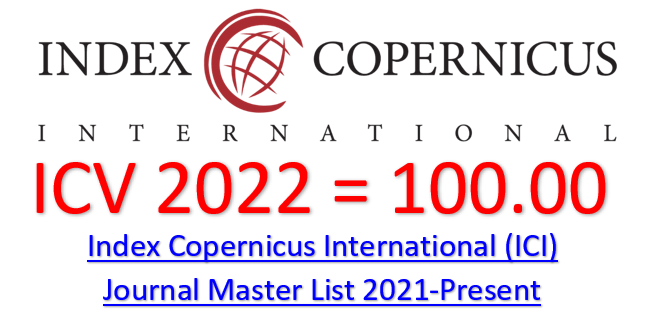The Health Education Concerning the Influence Of Knowledge And Attitudes On The “Concise, Neat, Clean, Careful, Diligent” Work Culture Behavior Of Employees
DOI:
https://doi.org/10.55018/janh.v5i2.160Keywords:
Health Education, Knowledge, Attitudes, Employee, Work CultureAbstract
Background: Training and socialization on Occupational Health and Safety (OHS) throughout 2022 have been carried out to achieve ISO. From the audit results in 2023, it has been found, among others, that the application of “Concise, neat, clean, careful, and diligent” needs to be developed further. The purpose of this activity is to provide Dinas Kesehatan Kabupaten Kediri Kediri employees with knowledge about “Concise, Neat, Clean, Careful, Diligent”.
Methods: Participants in this activity were Dinas Kesehatan Kabupaten Kediri employees, and the methods used were lectures, discussions, and questions and answers. The data collection technique used was a questionnaire.
Results: The results of the pre-test and post-test showed that only a small proportion had good knowledge (37%), positive attitudes towards the “Concise, Neat, Clean, Careful, Diligent” (30%), and good “Concise, Neat, Clean, Careful, Diligent” behaviour (33%). It was found that a p-value of 0.001 <0.05 indicated that there was a significant influence between “Concise, Neat, Clean, Careful, Diligent” knowledge and “Concise, Neat, Clean, Careful, Diligent” behaviour and a p-value of 0.010 <0.05 indicated that there was a significant influence between the “Concise, Neat, Clean, Careful, Diligent” attitudes and “Concise, Neat, Clean, Careful, Diligent” behavior of Dinas Kesehatan Kabupaten Kediri employees.
Conclusion: This community service activity went smoothly, thanks to the extraordinary enthusiasm of the employees in following all the planned activities. This activity positively impacted and refreshed information about the “Concise, Neat, Clean, Careful, Diligent” Work Culture, contributing to increased knowledge, especially for employees. In addition, this service effort also received support and appreciation from the Dinas Kesehatan Kabupaten Kediri office
Downloads
References
Emmanuel, K., & Hamid, T. (2023). A Qualitative Study of the Effects of Socio—organizational Factors on the Information Security Culture of Employees in a Financial Institution. Lecture Notes in Networks and Systems, 735 LNNS, 119–141. https://doi.org/10.1007/978-3-031-37164-6_10
Goebel, J. R., Ahluwalia, S. C., Chong, K., Shreve, S. T., Goldzweig, C. L., Austin, C., Asch, S. M., & Lorenz, K. A. (2014). Developing an informatics tool to advance supportive care: the Veterans Health Care Administration Palliative Care National Clinical Template. Journal of Palliative Medicine, 17(3), 266–273. https://doi.org/10.1089/jpm.2013.0288
Hulcock. (2007). Psikologi Perkembangan. Gramedia.
Hultman, K. (2020). Building a culture of employee optimization. Organization Development Journal, 38(2), 35–48. https://www.scopus.com/inward/record.uri?eid=2-s2.0-85101332732&partnerID=40&md5=f99026821cc907de918a1fedda5480d3
Ichioka, M., & Yoshida, H. (1972). Discussion. Team work by the hospital and the public health clinic. Health education concerning premature infants. [Josanpu Zasshi] The Japanese Journal for Midwife, 26(10), 20–26. https://www.scopus.com/inward/record.uri?eid=2-s2.0-0015407895&partnerID=40&md5=c7dc72813b17b3a962788382a16eeb5f
Indrawan, I. A., Suwondo, A., & Lestantyo, D. (2014). Faktor-faktor yang berhubungan dengan kejadian dermatitis kontak iritan pada pekerja bagian premix di PT. X Cirebon. Jurnal Kesehatan Masyarakat (Undip), 2(2), 110–118.
Jahja, Y. (2011). Psikologi perkembangan. Kencana.
Jonas, M., & Berner, M. (2010). Beyond works councils?: Social practices and cultures of employee participation in a regional high-tech cluster. European Societies, 12(4), 493–519. https://doi.org/10.1080/14616696.2010.483004
Lamalle, Y., & Dell’Accio, P. (1992). Place of the occupational physician in health education concerning the early detection of breast cancer: Comparison of two matched series. Archives Des Maladies Professionnelles de Medecine Du Travail et de Securite Sociale, 53(3), 205–206. https://www.scopus.com/inward/record.uri?eid=2-s2.0-0026642540&partnerID=40&md5=0af41a3a03780621c460b33b0505f262
Mavunga, G. (2019). Going beyond the official domain in the search for the culture of employee learning: The case of junior support staff at a South African university. Critical Studies in Teaching and Learning, 7(2), 16–33. https://doi.org/10.14426/cristal.v7i2.172
Mavunga, G. (2021). The Influence of Collective Agency on the Culture of Employee Learning: the Case of Administrative Assistants at a Comprehensive South African University. International Journal of African Higher Education, 8(1), 43–69. https://doi.org/10.6017/ijahe.v8i1.13369
Melnik, Y. (2020). Representations of the organizational culture of employees of trade enterprise: Integration, differentiation or fragmentation of representations. Organizatsionnaya Psikhologiya, 10(1), 89–105. https://www.scopus.com/inward/record.uri?eid=2-s2.0-85091598681&partnerID=40&md5=362d885b0a6db8719ff2849079403a02
Mori, E. (1987). The age of small families and health education concerning childbirth. [Josanpu Zasshi] The Japanese Journal for Midwife, 41(4), 287–293. https://www.scopus.com/inward/record.uri?eid=2-s2.0-0023320852&partnerID=40&md5=8e2abc736d73628bdcecfd55d269c433
Ostapenko, M., & Kholboeva, U. (2020). Improving the environmental culture of employees at the enterprise, based on the environmental management system and sustainable development principles. E3S Web of Conferences, 193. https://doi.org/10.1051/e3sconf/202019302013
Restuputri, D. P., & Wahyudin, D. (2019). Penerapan 5S (Seiri, Seiton, Seiso, Seiketsu, Shitsuke) Sebagai Upaya Pengurangan Waste Pada Pt X. Jurnal Sistem Teknik Industri, 21(1).
Smith, J. A. M. (2012). Shaping an Organizational Culture of Employee and Volunteer Commitment. In The Volunteer Management Handbook: Leadership Strategies for Success: Second Edition (pp. 81–101). https://doi.org/10.1002/9781118386194.ch4
Untea, G., Badea, S., Botǎu, C., Botǎu-Angelescu, A., & Grigorescu, L. (1972). Health education concerning oral hygiene for 1st grade pupils. Stomatologia, 19(6), 547–549. https://www.scopus.com/inward/record.uri?eid=2-s2.0-0015423401&partnerID=40&md5=b228d6473105516096d4c1e4d4b80eb9
Valero Juan, L. F., Sesma Sutil, R. M., & Sáenz González, M. C. (1997). Health education concerning hydatidosis in school children in rural environment. Atencion Primaria / Sociedad Española de Medicina de Familia y Comunitaria, 20(10), 569–570. https://www.scopus.com/inward/record.uri?eid=2-s2.0-0031297220&partnerID=40&md5=1bb55163fc298bd72d9ada135c549a4d
Wies, D. (2012). Getting the most from the staff you’ve got: Creating a culture of employee engagement at USD. WEFTEC 2012 - 85th Annual Technical Exhibition and Conference, 11, 6745–6751. https://doi.org/10.2175/193864712811703199
Downloads
Published
How to Cite
Issue
Section
License

This work is licensed under a Creative Commons Attribution-ShareAlike 4.0 International License.

























